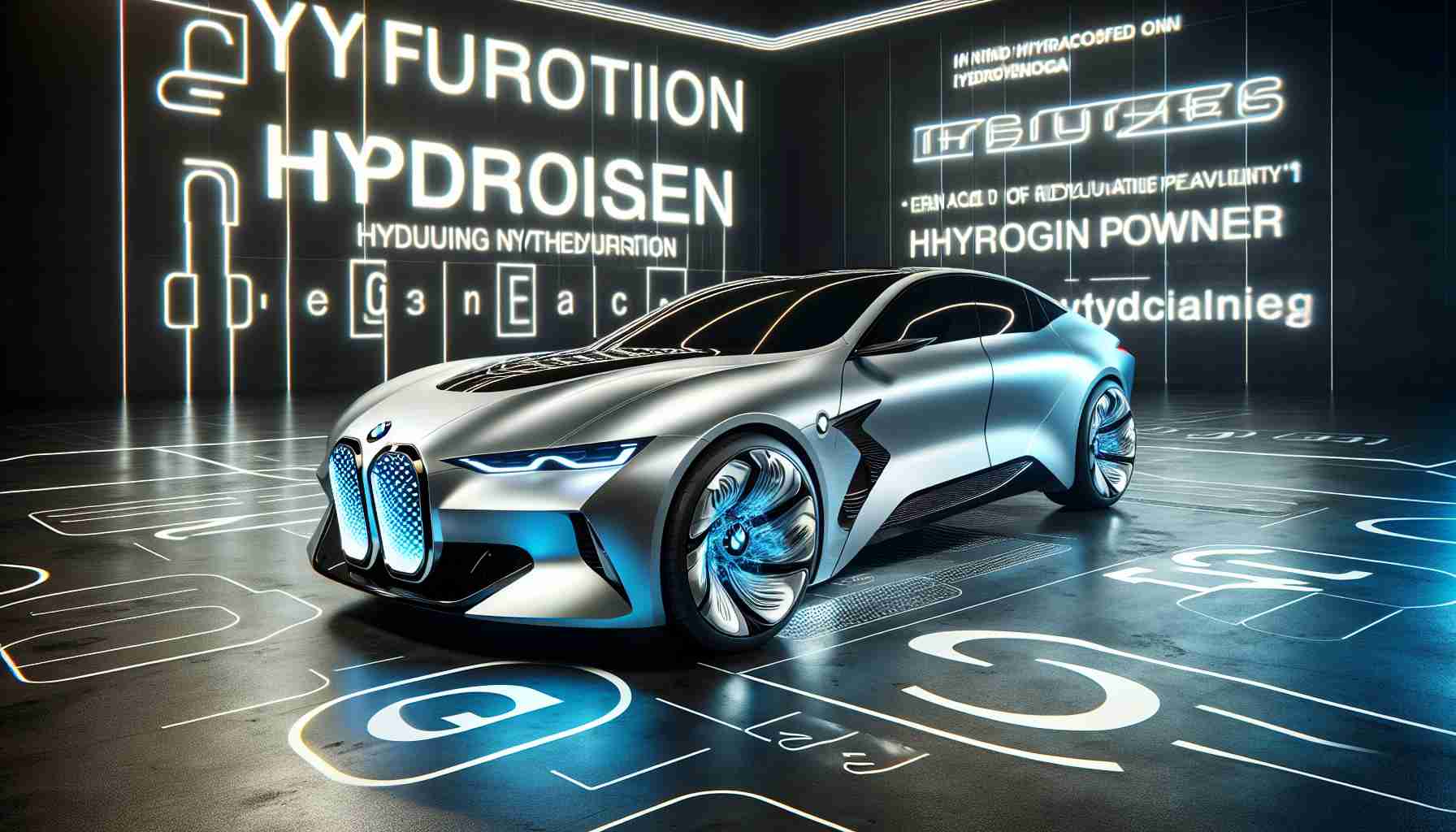
Hydrogen fuel cells are gaining traction, and BMW is ready to leap into this innovative energy segment. The iconic German car manufacturer has announced a groundbreaking partnership with Toyota, the world’s leading automobile producer, to create its first hydrogen-powered vehicle by 2028. This collaboration marks a significant shift as both companies aim to harness hydrogen’s potential within the automotive sector amidst rising interest in alternative fuels.
BMW is yet to disclose specific models that will feature this new hydrogen powertrain. Speculations suggest that an SUV may be the first to showcase this technology. The new drivetrain will likely align with BMW’s forthcoming Neue Klasse architecture, set for production next year. Utilizing Toyota’s advanced third-generation fuel cell stack will enable BMW to produce vehicles that are not only cost-effective but also more efficient in terms of range.
However, challenges lie ahead for hydrogen vehicle adoption. BMW’s vice president of hydrogen vehicles acknowledged that the transition to hydrogen isn’t straightforward. Current infrastructure limitations and the dominance of electric vehicles present hurdles that need to be addressed. Nonetheless, hydrogen holds promise beyond passenger cars, particularly in industries like shipping and aviation, where electric options may fall short.
As the market evolves, the competition will intensify. With companies recognizing the importance of diversifying their energy sources, hydrogen may play a vital role in meeting modern environmental goals and consumer expectations alike.
The Future of Mobility: BMW and Toyota’s Revolutionary Hydrogen Partnership
Introduction to Hydrogen Fuel Cells
Hydrogen fuel cells are emerging as a promising alternative energy source for the automotive industry, offering a viable solution to reduce carbon emissions and enhance sustainability. With car manufacturers striving for innovation and cleaner fuel options, BMW and Toyota’s collaboration seeks to spearhead this movement toward hydrogen-powered vehicles.
Key Features of BMW’s Hydrogen Initiative
1. Collaboration with Toyota: BMW’s partnership with Toyota aims to combine their strengths in automotive engineering. By utilizing Toyota’s sophisticated third-generation fuel cell stack, BMW plans to enhance efficiency and affordability in hydrogen vehicles.
2. Performance on the Horizon: Although specific model details are yet to be revealed, industry speculation suggests that a hydrogen-powered SUV could be the inaugural vehicle featuring this technology. This aligns well with BMW’s upcoming Neue Klasse architecture, which emphasizes sustainability and advanced technology.
3. Adoption Challenges: One of the significant hurdles for widespread hydrogen adoption is the current lack of refueling infrastructure. As the automotive landscape is dominated by electric vehicles, the transition to hydrogen is complex but necessary for diversifying automotive energy solutions.
Use Cases for Hydrogen Power
Hydrogen fuel cells are not limited to passenger vehicles. They also present exciting possibilities in other sectors, including:
– Shipping: As the maritime industry seeks to reduce emissions, hydrogen fuel cells can facilitate cleaner shipping methods.
– Aviation: Hydrogen power may offer a solution for sustainable air travel, where battery technology currently faces limitations.
Evaluating the Pros and Cons of Hydrogen Vehicles
Pros:
– Rapid Refueling: Refueling hydrogen vehicles can be done in minutes, similar to traditional gasoline cars, compared to the longer charging times of electric vehicles.
– Long Range: Hydrogen vehicles typically have a longer range than many battery electric vehicles, making them suitable for long-distance travel.
Cons:
– Infrastructure Challenges: Limited refueling stations present a significant obstacle for consumers considering switching to hydrogen.
– Production Emissions: While hydrogen fuel cells generate clean energy during operation, the method of hydrogen production can involve emissions unless derived from renewable sources.
Market Analysis and Future Trends
The shift towards hydrogen fuel technology reflects broader trends in the automotive industry aiming for sustainability and reduced reliance on fossil fuels. As more automakers explore hydrogen options, competition will likely spur advancements and investment in refueling infrastructure, making hydrogen a more accessible option for consumers.
Innovations and Predictions
As we move closer to 2028, the anticipated release of BMW’s hydrogen vehicle is poised to be a game-changer. Increased collaboration across the automotive sector will enhance technology, making hydrogen a viable alternative for not just personal transportation but also larger, more energy-intensive industries.
Conclusion
BMW’s bold leap into the hydrogen sector, in partnership with Toyota, is not just about producing vehicles; it’s about setting a foundation for future advancements in clean mobility. As these companies navigate the challenges ahead, their commitment to innovation could redefine the landscape of the automotive industry.
For more insights into the future of automobiles powered by alternative energy, visit BMW.



